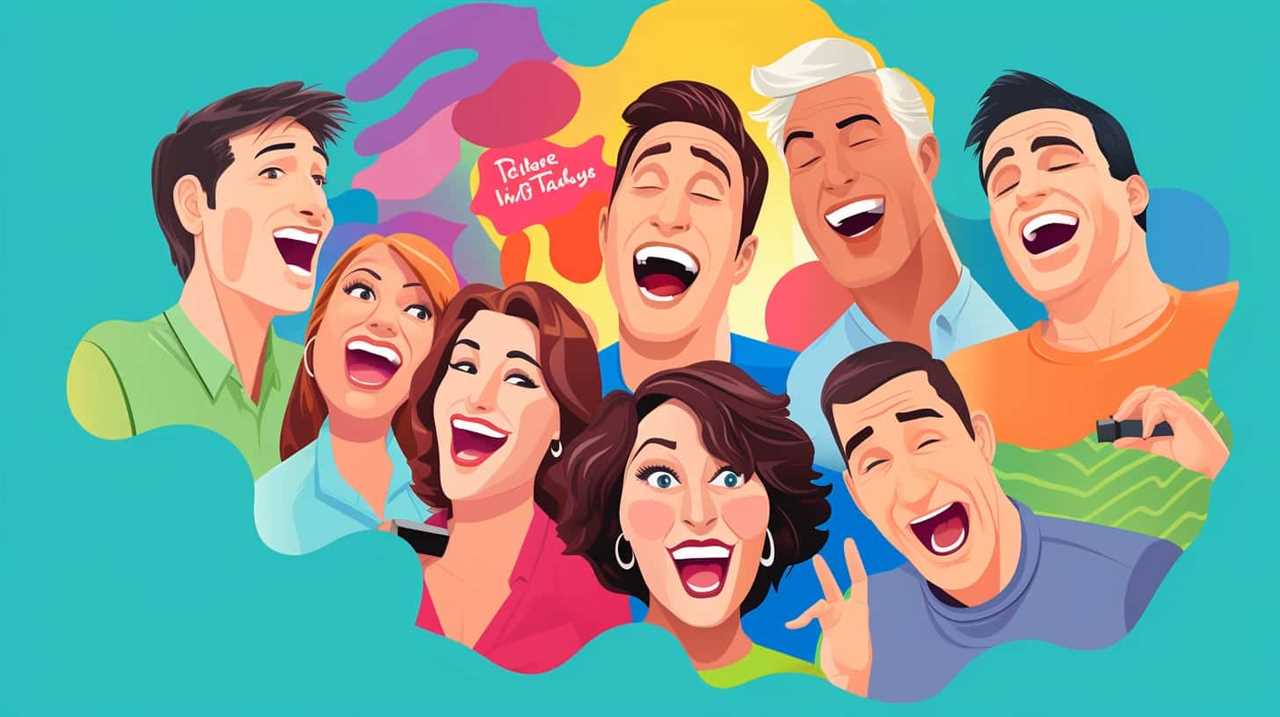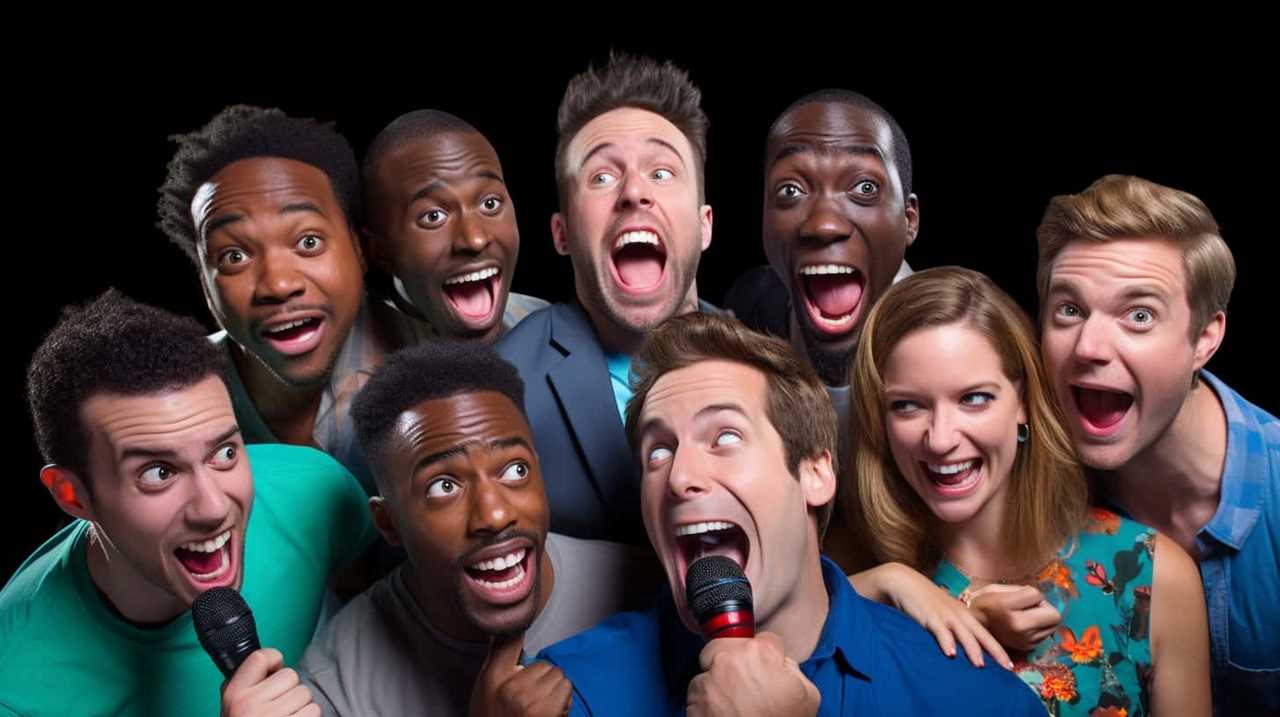We all appreciate a memorable catchphrase, don’t we? Those unforgettable lines from our beloved TV shows that have seamlessly integrated into our daily interactions.
From Seinfeld’s ‘No Soup for You’ to Friends’ ‘How You Doin’, these phrases have become cultural touchstones, effortlessly slipping into our vernacular.
They add a dash of wit and familiarity to our interactions, allowing us to connect with others who share our love for these shows.
Whether it’s The Office’s ‘That’s What She Said’ or Game of Thrones’ ‘Winter Is Coming’, these phrases have transcended their original context and taken on a life of their own.

So, let’s explore the world of famous show phrases and see how they have revolutionized our daily conversations.
Key Takeaways
- Catchphrases from famous shows like Seinfeld, Friends, The Office, and others have had a significant cultural impact.
- These catchphrases have become part of everyday conversations and modern-day usage, adding humor and entertainment to social interactions.
- Catchphrases contribute to the cultural significance of TV shows and characters, reflecting their impact and lasting legacy.
- Catchphrases create familiarity and connection with the audience, sparking conversations and building a sense of community among fans.
Seinfeld’s "No Soup for You
In our daily conversations, we often use the famous phrase from Seinfeld, ‘No soup for us.’ This iconic line originated from the classic sitcom episode titled ‘The Soup Nazi,’ which aired in 1995. The phrase quickly gained popularity and became a cultural phenomenon, with people using it to express disappointment or rejection in a lighthearted manner.
The origins of this catchphrase lie in the character of the Soup Nazi, played by actor Larry Thomas. He portrayed a strict soup vendor who enforced strict rules upon his customers, often denying them soup if they didn’t follow his instructions to the letter. The phrase ‘No soup for you!’ became synonymous with his character’s stern demeanor and uncompromising nature.
The impact of catchphrases like ‘No soup for you’ on television and popular culture can’t be underestimated. These phrases have a way of seeping into our everyday language, becoming part of our lexicon. They create a shared cultural experience and can instantly evoke nostalgia and familiarity among fans of the show.
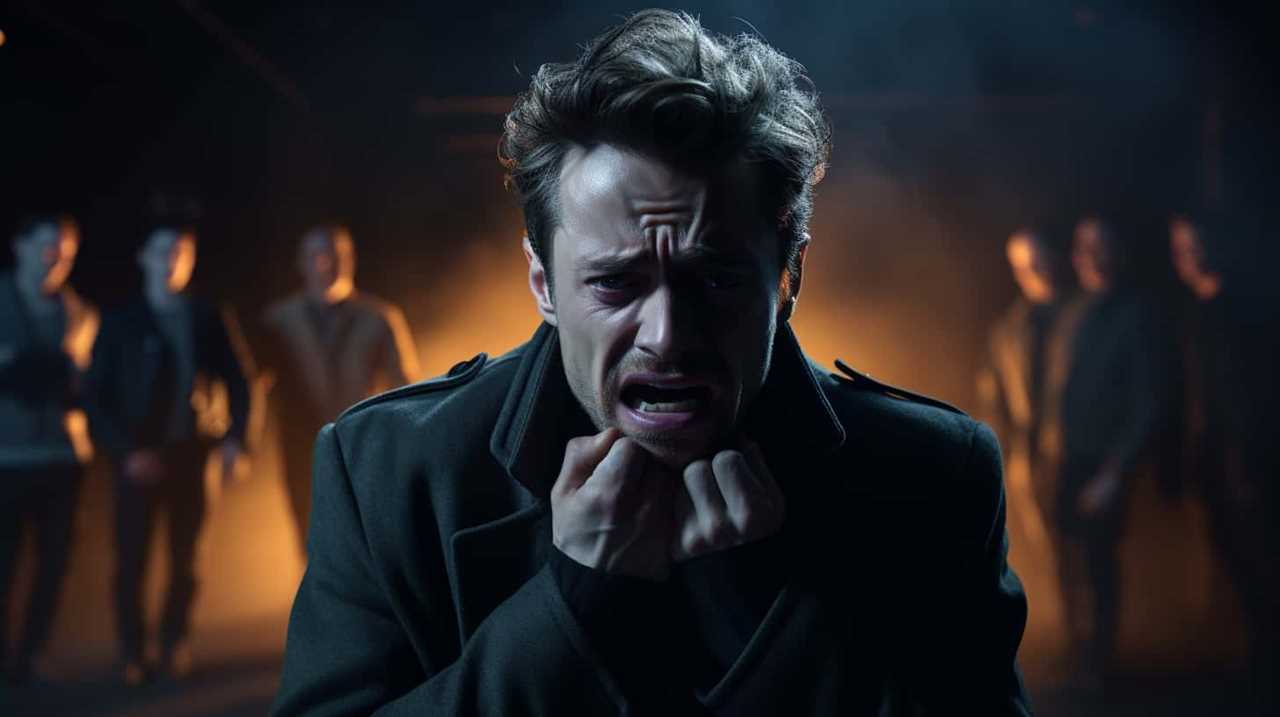
Seinfeld’s ‘No soup for you’ has become more than just a catchy line. It has become a symbol of the show’s wit, humor, and unique brand of observational comedy. It serves as a reminder of the enduring influence that sitcoms can have on our language and popular culture.
Friends’ "How You Doin
We often use the popular phrase from Friends, ‘How you doin?’, in our everyday conversations. This iconic catchphrase, uttered by the character Joey Tribbiani, has become deeply ingrained in pop culture. It is not only a way to check in on someone’s well-being but also carries a playful and flirtatious undertone. The impact of Friends’ ‘How you doin?’ on dating culture cannot be overstated. It has become a go-to line for those looking to break the ice or express interest in someone romantically.
To better understand the significance of this phrase, let’s take a closer look at its impact on dating culture:
| Impact on Dating Culture | Explanation |
|---|---|
| Ice Breaker | How you doin?’ serves as a lighthearted and casual conversation starter, helping individuals initiate interactions with potential romantic interests. |
| Flirtatious Undertone | The phrase carries a subtle hint of attraction and playfulness, making it a popular choice for those looking to express interest in a charming and charismatic way. |
| Pop Culture Reference | Referencing Friends and using ‘How you doin?’ creates an instant connection between individuals, fostering a sense of shared interests and nostalgia. |
| Memorable and Catchy | The phrase’s catchy nature makes it easy to remember, leading to its widespread adoption and integration into everyday conversations. |
As we explore other famous show phrases, let’s transition to ‘The Office’s ‘That’s what she said’ and delve into its comedic impact.

The Office’s "That’s What She Said
Let’s talk about ‘That’s What She Said’ from The Office, a phrase that has had a significant cultural impact.
This memorable comedic catchphrase has made its way into daily conversations, influencing pop culture and becoming a staple in comedic timing.
Its ability to add humor and innuendo to various situations has made it a favorite among fans and has solidified its place in the lexicon of popular show phrases.
Cultural Impact of ‘That’s What She Said
Exploring the widespread adoption of ‘That’s What She Said’ from The Office reveals its significant cultural impact on everyday conversations.
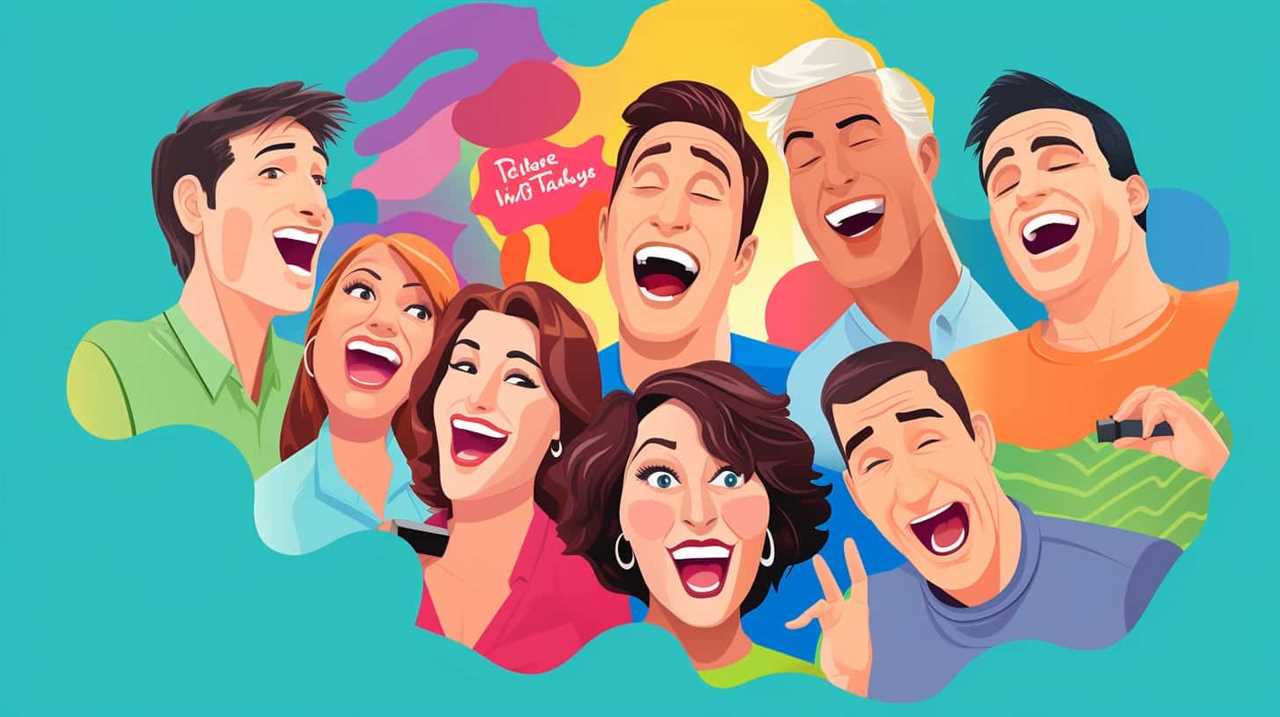
This iconic phrase has gained immense popularity and is now a part of modern day usage. Its cultural significance lies in its ability to add humor and innuendo to various situations, making it a go-to phrase for comedic effect.
From casual conversations to social media interactions, ‘That’s What She Said’ has become a staple in pop culture. Its versatility allows people to use it in a wide range of contexts, making it a memorable comedic catchphrase that continues to bring laughter and entertainment.
As we delve deeper into its origins and evolution, we can better appreciate the lasting impact that ‘That’s What She Said’ has had on our everyday language.
Memorable Comedic Catchphrase
As fans of The Office, we can’t help but appreciate the impact of the show’s memorable comedic catchphrase, ‘That’s What She Said’. This catchphrase has become so popular that it has transcended the show itself and entered into our daily conversations. Its witty and suggestive nature adds a touch of humor to everyday situations.
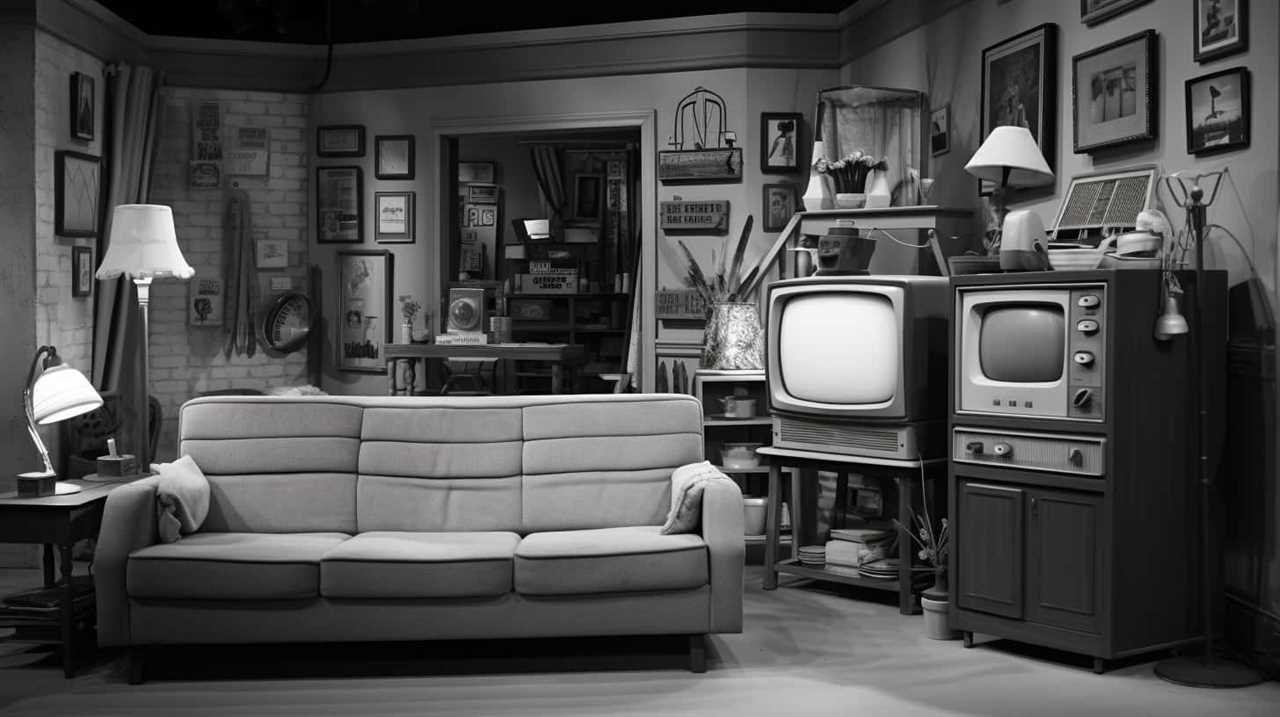
Here are three reasons why memorable catchphrases in sitcoms, like ‘That’s What She Said’, have such a strong impact on audience engagement:
- Familiarity: Catchphrases create a sense of familiarity and connection between the audience and the characters, making us feel like we’re part of the inside jokes.
- Shared experience: When we use catchphrases in our conversations, we create a shared experience with fellow fans, sparking conversations and building a sense of community.
- Memorable moments: Catchphrases often come from memorable moments in the show, reminding us of the funny, heartwarming, or outrageous scenes that made us fall in love with the characters and the show itself.
Influence on Pop Culture
One reason ‘That’s What She Said’ from The Office has had a significant influence on pop culture is its widespread adoption in everyday conversations. This catchphrase, originally used as a comedic device in the show, has become a staple in modern language, infiltrating various aspects of society.
Its impact can even be seen in fashion, with t-shirts and accessories featuring the phrase becoming popular among fans. Additionally, ‘That’s What She Said’ has made its way into advertising campaigns, adding humor and relatability to products and services.
Its versatility and ability to generate laughter have made it a go-to phrase for people seeking to inject humor into their conversations. The influence of ‘That’s What She Said’ on pop culture is undeniable, proving that a simple catchphrase can have a lasting impact.
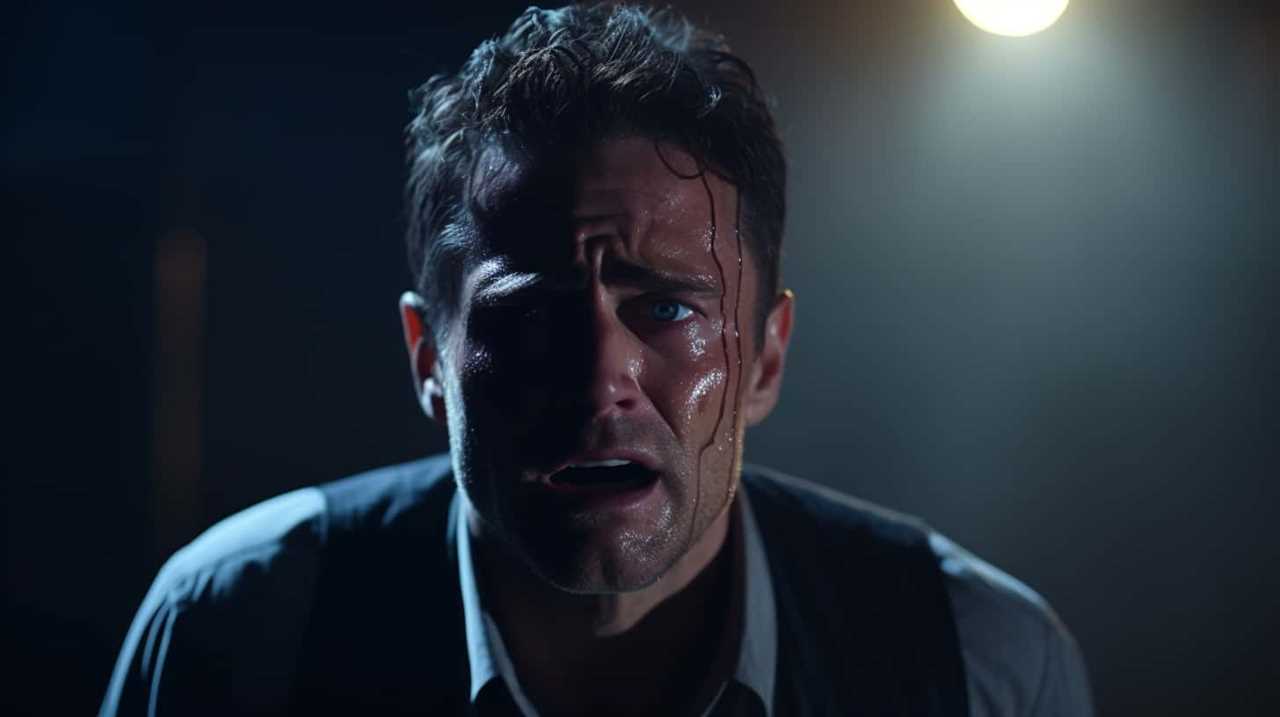
Game of Thrones’ "Winter Is Coming
When it comes to iconic catchphrases, few are as recognizable as Game of Thrones’ ‘Winter Is Coming’.
This phrase has permeated popular culture, with references and memes appearing in various contexts.
From its ominous tone to its foreshadowing of the harsh winters in Westeros, ‘Winter Is Coming’ has become a memorable dialogue moment that encapsulates the unpredictable and dangerous nature of the show.
Iconic Catchphrase Impact
What impact does the iconic catchphrase ‘Winter Is Coming’ from Game of Thrones have on daily conversations?
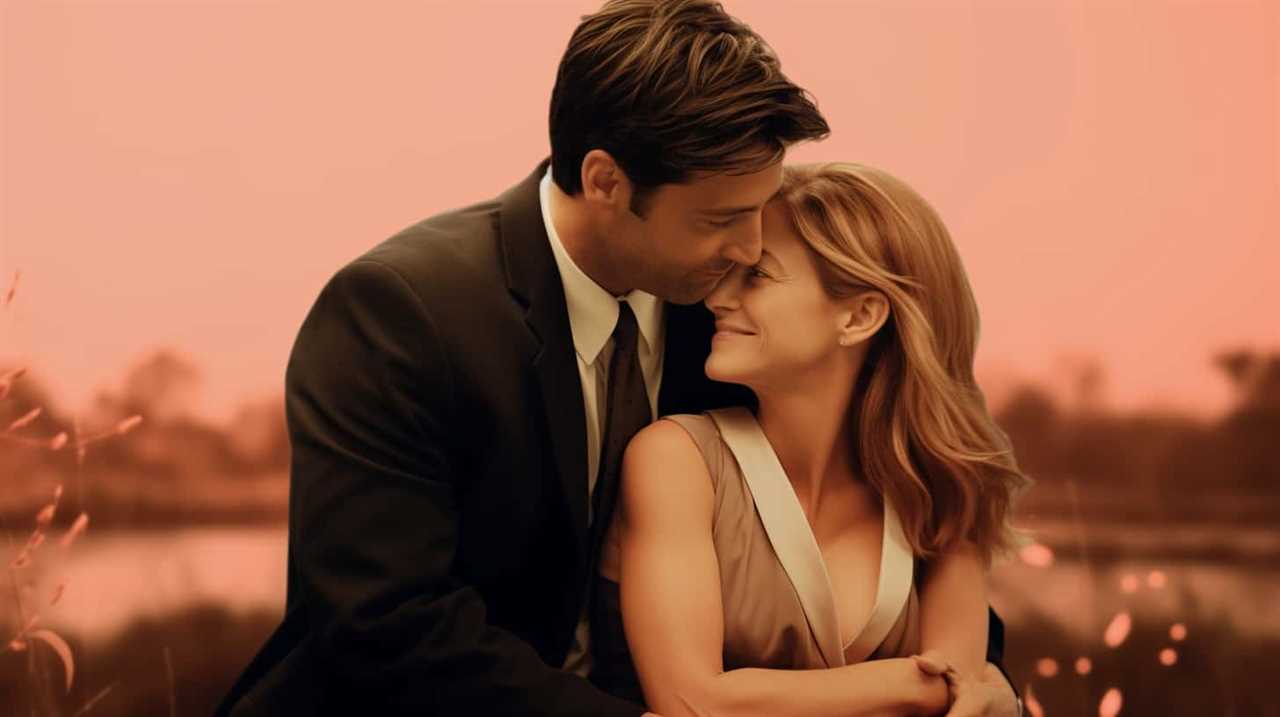
This phrase, originating from the hit TV show Game of Thrones, has become a cultural phenomenon and has had a significant impact on language and communication. Here are three ways this iconic catchphrase has influenced our daily conversations:
- Pop culture references: People often use the phrase ‘Winter Is Coming’ in various contexts to reference the show or to convey a sense of impending doom or challenge.
- Shared understanding: Game of Thrones fans instantly recognize and connect with the phrase, creating a shared understanding and sense of community.
- Memorable and quotable: ‘Winter Is Coming’ has become a memorable and quotable catchphrase that adds excitement and intrigue to conversations, making it a popular choice for social media posts and memes.
Cultural References and Influence
We are constantly surrounded by cultural references and influences, and one that has undoubtedly made its mark is Game of Thrones’ iconic catchphrase ‘Winter Is Coming’. This phrase has transcended the realm of television and has seeped into our everyday conversations, as well as various forms of media. It has been referenced in modern music, with artists incorporating the phrase into their lyrics to evoke a sense of impending doom or change. Additionally, the impact of famous show catchphrases on advertising campaigns can’t be overlooked. Advertisers have cleverly incorporated ‘Winter Is Coming’ into their campaigns to create a sense of urgency and anticipation for their products or services. This catchphrase has truly become a cultural touchstone, and its influence can be seen in various aspects of our lives.
Moving from the impact of catchphrases, let’s now delve into some of the memorable dialogue moments from the show.
Memorable Dialogue Moments
Continuing on from the impact of catchphrases, let’s now take a closer look at some of the unforgettable dialogue moments that have emerged from Game of Thrones’ iconic phrase ‘Winter Is Coming’. This memorable TV catchphrase has had a profound impact on language and communication, infiltrating our everyday conversations.
Here are three sub-lists highlighting the impact of these dialogue moments:
- Memorable Quotes: ‘When you play the game of thrones, you win or you die.’ This quote from Cersei Lannister reminds us of the high stakes in the show and has become synonymous with ruthless ambition.
- Popular Expressions: ‘You know nothing, Jon Snow.’ Ygritte’s playful mockery of Jon Snow has become a playful way to tease someone who’s clueless about a certain topic.
- Cultural References: ‘Valar Morghulis’ or ‘All men must die’ is a phrase used in the show to remind characters of their mortality. It has since become a cultural reference to acknowledge the transient nature of life.
These memorable dialogue moments from Game of Thrones haven’t only entertained us but have also left a lasting impact on our language and communication.
The Simpsons’ "D’oh
The phrase ‘D’oh’ from The Simpsons has become a widely recognized expression of frustration or annoyance in daily conversations. With its cultural significance and comedic influence, this simple word has permeated popular culture and has been adopted by people around the world.
First introduced by Homer Simpson in the early years of the show, ‘D’oh’ quickly became a catchphrase that perfectly encapsulated the exasperation many of us feel in our everyday lives. Its origins can be traced back to the 1940s, when it was used in radio shows and comic strips. However, it was The Simpsons that truly popularized the term and made it a household phrase.

The brilliance of ‘D’oh’ lies in its versatility. It can be used in a variety of situations, from minor mishaps to major blunders, and is universally understood. Its concise nature allows for a quick release of frustration without the need for elaborate explanations.
Now, let’s transition to the subsequent section about ‘Breaking Bad’s ‘I am the one who knocks’.
Breaking Bad’s "I Am the One Who Knocks
Introducing Breaking Bad’s infamous phrase, ‘I Am the One Who Knocks,’ which has become a chilling declaration of power and dominance in everyday conversations. This iconic TV catchphrase from the critically acclaimed show has left a lasting impact on popular culture, permeating into our daily lives with its menacing presence.
Here’s why ‘I Am the One Who Knocks’ has become a must-know phrase:

- Symbol of Power: This phrase captures the essence of Walter White’s transformation from a meek chemistry teacher to a ruthless drug lord. It signifies his unwavering confidence and control over his criminal empire, making it a perfect expression of dominance in any context.
- Unforgettable Delivery: Bryan Cranston’s masterful portrayal of Walter White brought these words to life, delivering them with a mix of intensity and conviction that’s hard to forget. The way he delivers this line is nothing short of captivating, leaving a lasting impression on viewers.
- Cultural Currency: ‘I Am the One Who Knocks’ has transcended the show itself and become a cultural reference point. People use it to assert their authority or to convey a sense of power in various situations, solidifying its status as a memorable catchphrase.
Breaking Bad’s impact on television history is undeniable, and ‘I Am the One Who Knocks’ stands as one of its most iconic contributions. This phrase continues to reverberate in everyday conversations, reminding us of the show’s brilliance and Walter White’s indelible presence.
Frequently Asked Questions
Who Said "No Soup for You" in Seinfeld?
In Seinfeld, the iconic phrase "no soup for you" was said by the character known as the Soup Nazi. The origins of this phrase lie in the hilarious episode where Jerry and his friends encounter this strict soup kitchen owner.
What Is the Significance of the Phrase "How You Doin" in Friends?
The phrase ‘how you doin’ in Friends has become iconic, thanks to the character of Joey Tribbiani. It signifies his confident and flirtatious nature, which has made it a popular catchphrase in daily conversations.
Which Character in the Office Is Known for Saying "That’s What She Said"?
In The Office, Michael Scott is known for saying ‘that’s what she said’. This phrase is often used to make a sexual innuendo joke and has become a popular catchphrase in everyday conversations.
How Does the Phrase "Winter Is Coming" Relate to the Plot of Game of Thrones?
Exploring the symbolism of ‘winter is coming’ in Game of Thrones, we analyze its impact on the plot. This famous phrase serves as a constant reminder of impending danger and the looming threat of the White Walkers.
Who Is the Character in the Simpsons Known for Saying "D’oh"?
In the animated show The Simpsons, the character Homer Simpson is known for saying ‘d’oh’ when he makes a mistake. Catchphrases like these have a significant impact on popular culture and have evolved over time in television shows.
What are some popular show phrases that people use in everyday conversations?
When it comes to popular show phrases used in everyday conversations, uplifting TV show speeches often make the list. Characters like Mr. Rogers, Leslie Knope, and Coach Taylor have delivered memorable lines that resonate with audiences and inspire people to lift themselves up during tough times.
Conclusion
As we reflect on these famous show phrases that have become an integral part of our daily conversations, we can’t help but feel a sense of anticipation. These iconic lines have ingrained themselves in our collective culture, leaving us eagerly awaiting their next appearance.
From the humor of Seinfeld’s ‘No Soup for You’ to the charm of Friends’ ‘How You Doin’, the wit of The Office’s ‘That’s What She Said’, the foreboding of Game of Thrones’ ‘Winter Is Coming’, and the hilarity of The Simpsons’ ‘D’oh’, these phrases have left an indelible mark on our language.
And just like our favorite shows, we can’t wait to see what unforgettable lines lie ahead.
Lauren’s talent in writing is matched by her passion for storytelling. Her love for books and deep understanding of culture and entertainment add a distinct flavor to her work. As our media and press contact, Lauren skillfully bridges the gap between afterQuotes and the broader media landscape, bringing our message to a wider audience.



